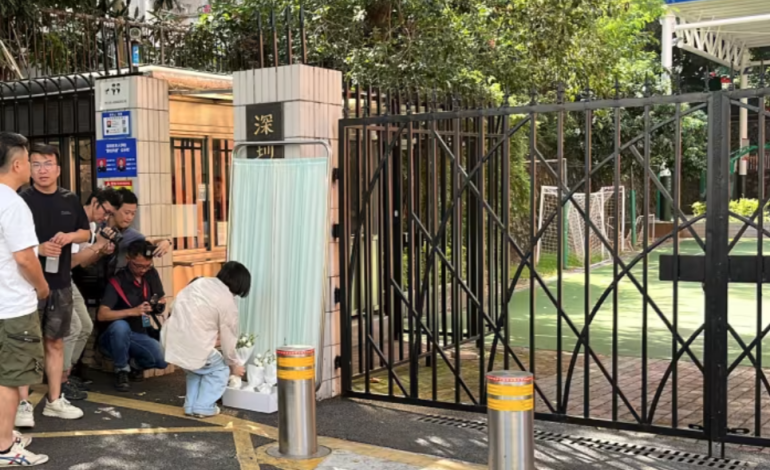The fatal stabbing of a 10-year-old Japanese boy in Shenzhen, China, has sparked concern among Japanese expatriates living in the country.
The incident, which took place near the boy’s school, has prompted top Japanese companies to warn their employees to take extra precautions, with some offering free flights home amid safety concerns.
Major firms such as Toshiba, Toyota, and Panasonic have reacted swiftly to the incident. Panasonic announced that it would cover the costs for its employees and their families to temporarily return to Japan, while also offering counseling services. Toshiba, which has a workforce of around 100 people in China, has urged employees to be cautious, while Toyota is providing its expatriates with safety information.
The killing is the third high-profile attack on foreigners in China in recent months, raising fears within the Japanese community. Some Japanese schools in the country have increased security and warned against speaking Japanese loudly in public. In the aftermath of the stabbing, the Guangzhou Japanese School canceled activities as a precaution.
Japanese Prime Minister Fumio Kishida condemned the attack as “despicable,” urging Beijing to take swift action to ensure the safety of Japanese nationals. The Japanese embassy in China has also issued warnings to its citizens to remain vigilant.
Chinese officials expressed regret over the boy’s death, stating they are increasing security measures around schools in Shenzhen. Local media have labeled the attack an isolated incident, though its timing—on the anniversary of Japan’s 1931 invasion of Manchuria—has raised concerns about rising anti-Japanese sentiment. Some online platforms in China have seen increased calls to target Japanese schools, which has heightened fears among Japanese residents.
This incident, along with other recent attacks, threatens to further strain relations between China and Japan, which have already been tense over historical grievances and territorial disputes. Despite these diplomatic challenges, the two nations continue to maintain significant economic ties.
The attack has also led to public mourning in both China and Japan, with locals in Shenzhen laying flowers at the gates of the Japanese school. Many Japanese expatriates are now reconsidering their future in China, with some deciding to send their children back to Japan for safety.
BBC, the Guardian, and the Wall Street Journal contributed to this report.








